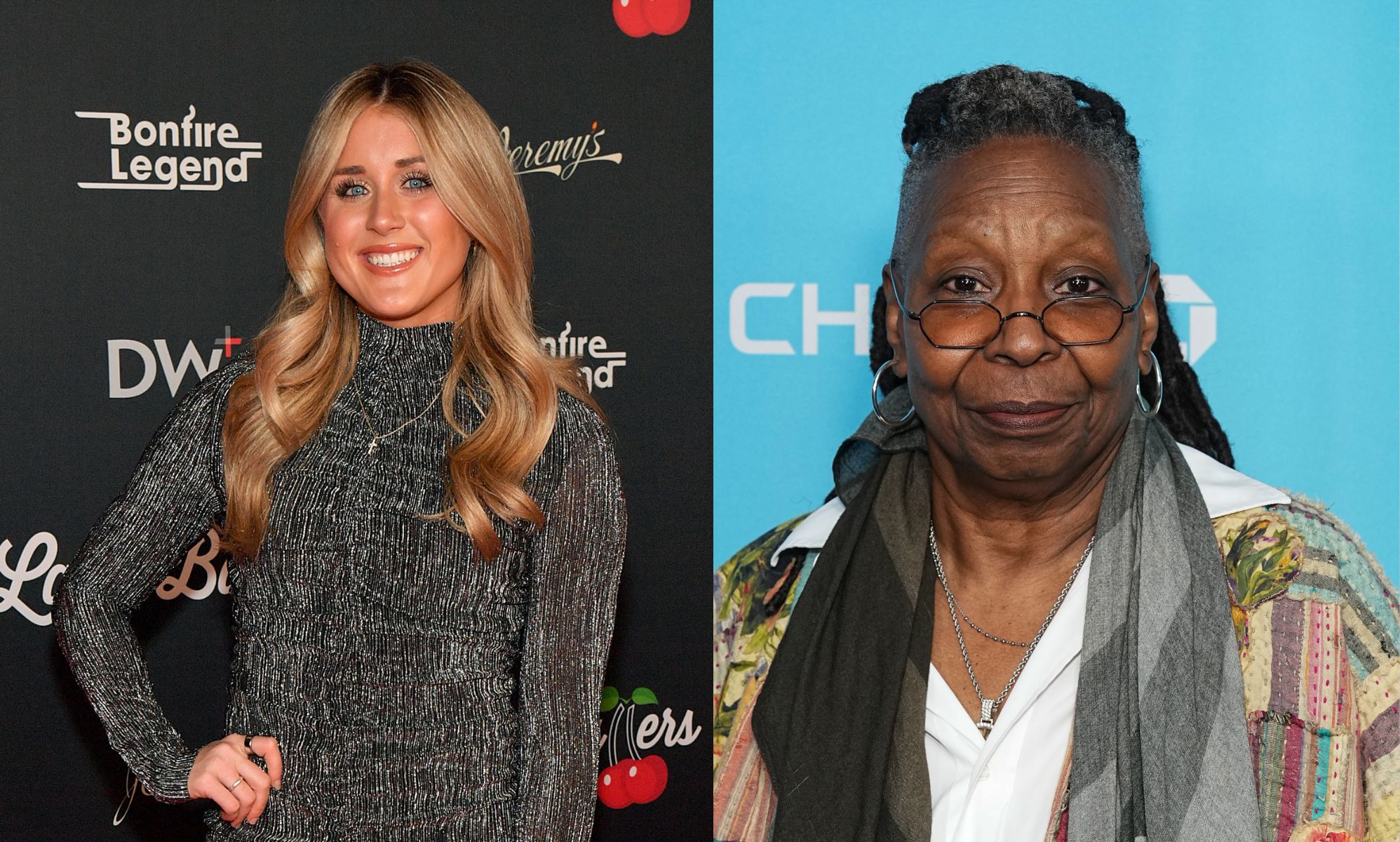In a dramatic legal development, Olympic swimmer Riley Gaines has filed a $10 million defamation lawsuit against actress and television host Whoopi Goldberg. The lawsuit stems from controversial comments made by Goldberg regarding Gaines’ outspoken views on transgender athletes competing in women’s sports. This legal action has sent shockwaves through both the sports and entertainment worlds, highlighting the increasingly polarized and sensitive debates surrounding gender, fairness, and inclusivity in competitive athletics.
Riley Gaines, a vocal advocate for the protection of women’s sports, has long been an opponent of transgender women competing in women’s categories. She argues that such participation is inherently unfair, citing concerns about physical advantages that transgender athletes may possess over cisgender women. Gaines has consistently used her platform to raise awareness of what she perceives as a growing threat to the integrity of women’s sports, drawing attention to cases where transgender athletes have outperformed cisgender women in various competitions.

The controversy ignited when Whoopi Goldberg, during a segment on The View, made statements that Riley Gaines contends were misrepresentative of her position on the issue. In the remarks, Goldberg suggested that Gaines was engaging in harmful rhetoric and spreading misinformation about transgender athletes. She also criticized Gaines for what she described as an “anti-trans” stance, framing her views as discriminatory and damaging to the broader cause of equality in sports. Goldberg’s comments, which aired on national television, were swiftly picked up by media outlets and sparked intense backlash from both sides of the debate.
Gaines, in response to Goldberg’s comments, argued that the television host’s statements were not only defamatory but also severely damaging to her reputation and professional life. According to the lawsuit, the public nature of Goldberg’s remarks led to widespread misinformation about Gaines’ views, and the negative fallout affected her relationships with sponsors, fellow athletes, and the public at large. Gaines claims that Goldberg’s characterization of her as being transphobic was both false and damaging, leading to emotional distress and professional setbacks.
The lawsuit is built on the premise that Goldberg’s comments crossed the line from public opinion to harmful misrepresentation. Gaines alleges that her position on transgender athletes, while certainly contentious, has always been grounded in a desire to preserve fair competition for women in sports. In contrast, she argues, Goldberg’s public condemnation of her views falsely portrayed her as an enemy of transgender rights, leading to unwarranted personal and professional harm.
In a statement released to the media, Gaines expressed her determination to stand up for what she believes in, emphasizing that her legal action against Goldberg is not only about defending her reputation but also about ensuring that the voices of those who advocate for the fairness of women’s sports are not silenced. She stressed that the issue at hand is one of equity in competition, and she remains committed to protecting opportunities for biological women in the athletic arena.

The defamation lawsuit against Goldberg has only added fuel to the already heated national conversation surrounding transgender athletes and their participation in women’s sports. Supporters of Gaines argue that her stance is about fairness and maintaining the integrity of women’s categories in sports, while critics accuse her of being intolerant and divisive. Similarly, supporters of Goldberg contend that her defense of transgender athletes is rooted in inclusion and the fight for equal rights, while her detractors argue that she has ignored the realities of physical differences between transgender women and cisgender women in competitive sports.
plications not just for the two women involved, but for the future of women’s sports and the ongoing struggle for fairness and inclusion in competitive athletics.

This legal battle also underscores the broader social and cultural tensions that are playing out across the United States, where issues of gender identity, trans rights, and fairness in sports have become flashpoints in ongoing national debates. The case is likely to draw significant media attention as it progresses through the courts, with legal experts predicting that it could have broader implications for how public figures speak about and engage with sensitive issues of gender and identity.
Whoopi Goldberg, to date, has not publicly responded to the defamation lawsuit. However, her silence has done little to quell the growing media storm surrounding the case. As the lawsuit continues, it is expected to attract significant media coverage, especially as both parties are high-profile public figures with large followings. The outcome of the case could set a precedent for how defamation suits are handled in the context of public debates on controversial social issues.
For Riley Gaines, the lawsuit represents more than just a fight for personal vindication. It is also a stand for the larger cause she has championed throughout her career—the protection of women’s sports. By taking legal action against a prominent figure like Goldberg, Gaines is signaling that she is unwilling to back down from her beliefs, regardless of the challenges she may face in the court of public opinion.
As this case unfolds, it will likely continue to fuel ongoing conversations about the intersection of gender, sports, and identity. It is a microcosm of the broader cultural battles that are playing out on the national stage, with no easy answers in sight. The outcome may have im


